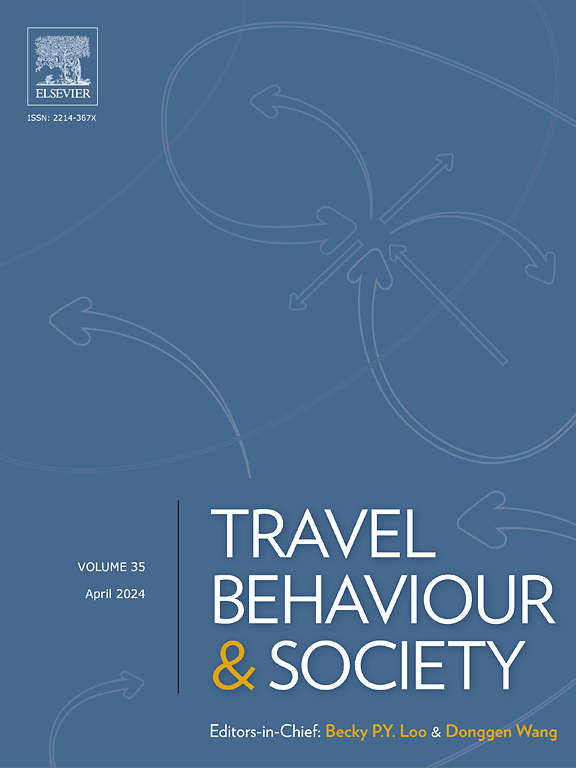Unmet walking needs and quality of life for older adults in China: Exploring the links
IF 5.1
2区 工程技术
Q1 TRANSPORTATION
引用次数: 0
Abstract
The importance of outdoor mobility, notably walking, for older adults’ quality of life (QoL) is well recognized, but unmet walking needs have been understudied, especially in the context of urban planning. Our study provides a thorough analysis of the effects of both actual and unmet walking on various dimensions of QoL among Chinese older adults, including physical (PhyH), psychological (PsyH), and social health (SH). We present new theoretical frameworks that considers the mediating effects of PhyH, PsyH, and SH, which adds to the existing knowledge of how mobility influences the wellbeing of the aging population. Our model, validated with data from 533 older adults in China, reveals that unmet walking needs negatively affect all dimensions of QoL, including overall QoL, PhyH, PsyH, and SH. In contrast, the actual walking frequencies are related only to PhyH and PsyH. Additionally, we find that PhyH, PsyH, and SH have distinct impacts on overall QoL, with PhyH and SH mediating the relationship between unmet walking frequencies and overall QoL. These findings are crucial for urban planners seeking to develop more inclusive and age-friendly urban environments that cater to the multifaceted needs of older adults, thereby fostering a more holistic approach to enhancing their QoL.
中国老年人未满足的步行需求与生活质量:探索两者之间的联系
户外活动的重要性,特别是步行,对于老年人的生活质量(QoL)是公认的,但未满足的步行需求尚未得到充分研究,特别是在城市规划的背景下。本研究深入分析了实际步行量和未达到步行量对中国老年人生活质量各维度的影响,包括身体(PhyH)、心理(PsyH)和社会健康(SH)。我们提出了新的理论框架,考虑了PhyH, PsyH和SH的中介作用,这增加了流动性如何影响老龄化人口福祉的现有知识。通过对533名中国老年人的数据进行验证,我们的模型显示,未满足的步行需求对生活质量的所有维度都有负面影响,包括总体生活质量、PhyH、PsyH和SH。相比之下,实际步行频率仅与PhyH和PsyH相关。此外,我们发现PhyH、PsyH和SH对总体生活质量有显著影响,PhyH和SH在未满足步行频率与总体生活质量之间起中介作用。这些发现对于城市规划者来说至关重要,他们希望开发更具包容性和老年人友好型的城市环境,以满足老年人多方面的需求,从而培养一种更全面的方法来提高老年人的生活质量。
本文章由计算机程序翻译,如有差异,请以英文原文为准。
求助全文
约1分钟内获得全文
求助全文
来源期刊

Travel Behaviour and Society
TRANSPORTATION-
CiteScore
9.80
自引率
7.70%
发文量
109
期刊介绍:
Travel Behaviour and Society is an interdisciplinary journal publishing high-quality original papers which report leading edge research in theories, methodologies and applications concerning transportation issues and challenges which involve the social and spatial dimensions. In particular, it provides a discussion forum for major research in travel behaviour, transportation infrastructure, transportation and environmental issues, mobility and social sustainability, transportation geographic information systems (TGIS), transportation and quality of life, transportation data collection and analysis, etc.
 求助内容:
求助内容: 应助结果提醒方式:
应助结果提醒方式:


